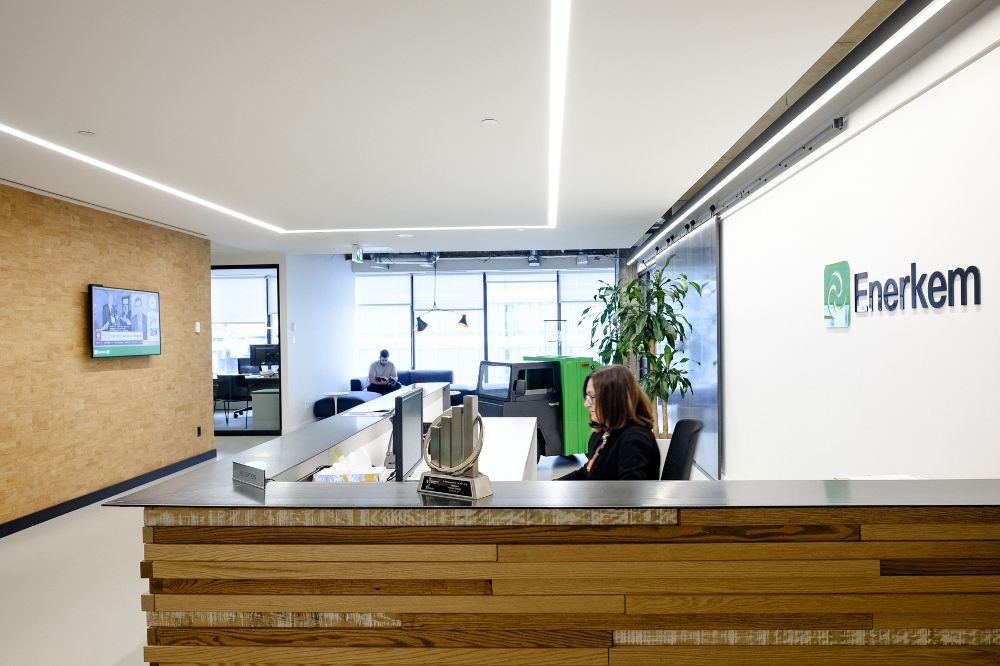Repsol has acquired a minority stake in the Canadian company Enerkem, a world technology leader in the production of renewable fuels and chemical products through the gasification of non-recyclable waste. This investment allows the multi-energy company to accelerate its decarbonization projects thanks to the integration of Enerkem technology in its industrial facilities and future plants.
Repsol has subscribed 54 million euros in the share capital of Enerkem. In addition, it will contribute another 68 million euros through the subscription of convertible bonds that could provide Repsol with an increase in its stake over the next few years, depending on a series of financial variables. In this way, Repsol becomes a strategic shareholder of the company to accelerate the adoption and deployment of Enerkem technology and develop new industrial projects both in Spain and elsewhere.
The multi-energy company has already partnered with Enerkem and Agbar to build the Ecoplanta Molecular Solutions waste recovery plant in El Morell (Tarragona), which is scheduled to start up in 2026. The plant will use Enerkem's gasification technology to process some 400,000 tons of non-recyclable solid waste per year, in order to produce 240,000 tons of methanol that can be used to make fuels and chemical products with a low carbon footprint, recovering 70% of the carbon present in non-recyclable materials. In addition, the project will reduce, during the first 10 years of operation, the equivalent of 3.4 million tons of CO2 in greenhouse gas (GHG) emissions, according to the calculation methodology of the Innovation Fund of the European Commission. In this way, the Ecoplanta project is aligned with the European Union's decarbonisation and climate change mitigation objectives.
Ecoplanta Molecular Solutions is one of the seven projects selected to receive financial support from the Innovation Fund of the European Commission for large-scale projects, among the more than 300 projects presented by the main European industrial groups. The financing agreement was signed at an event held in Brussels last week.
In 2019, Repsol was the first company in its sector to set itself the goal of achieving net zero emissions by 2050. The company is converting its industrial complexes into multi-energy centers capable of transforming waste and other renewable raw materials into products with low, zero or even negative carbon footprint. In addition, to achieve this, it has multiple investments underway based on the circular economy, energy efficiency, renewable hydrogen and technologies for the capture and use of CO 2 as its main strategic pillars. Repsol has had a circular economy strategy since 2016 that is applied throughout the company's value chain, from obtaining raw materials to marketing products and services.
Repsol's Industrial Business contributes decisively to a decarbonized and circular economy and is committed to the efficiency of its industrial processes. Repsol is the leading producer of fuels with a low carbon footprint on the Iberian Peninsula. A commitment has been made to produce two million tons of low-carbon fuels in 2030 and thus mitigate more than seven million tons of CO2. Its chemical products are used to manufacture everyday products that improve people's quality of life, well-being and safety. Its wide range of chemical products ranges from basic petrochemicals to derivatives, including a wide range of polyolefins, all of which are 100% recyclable. Repsol's goal is to recycle the equivalent of 20% of its polyolefin production by 2030.
The company has six large industrial complexes on the Iberian Peninsula where efficient fuels and differentiated products with high added value are manufactured.
Juan Abascal, Executive Director of Industrial Transformation and Circular Economy at Repsol, stated: "At Repsol we are very proud to become a shareholder of Enerkem and thus support its growth to consolidate itself as a leader in waste gasification technology for fuel production and other renewable chemical products. We are convinced that its cutting-edge technology, recently recognized by the European Innovation Fund, will be key to the decarbonization and circularity of both the chemical and fuel industries. Enerkem has several projects in different stages of development that will help Repsol accelerate its circular economy initiatives and open up new production routes for low-carbon fuels, synthetic fuels and renewable chemical products”.
Dominique Boies, CEO of Enerkem, said: "We are pleased to welcome Repsol as a shareholder and as a member of the Board of Directors of Enerkem. Repsol is a global multi-energy provider that will help accelerate the deployment of our technology in new markets. Repsol's investment in the capital of Enerkem reinforces our position as a leader in the renewable fuels and chemical products sector and in the construction of a circular economy”.
